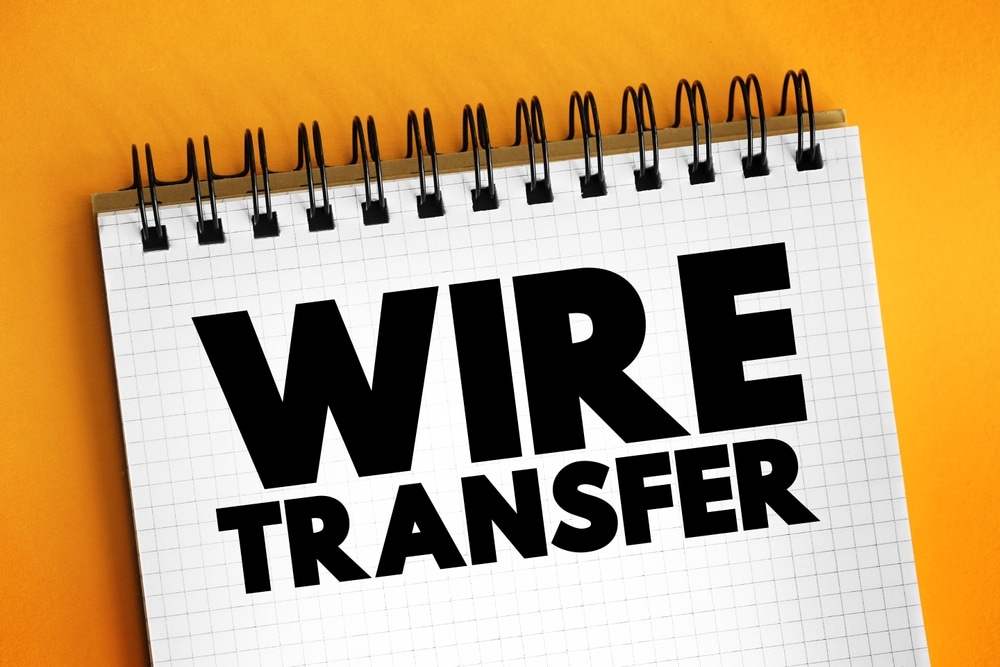Wire transfers have become a convenient way to send funds from one entity or individual to another. Notably, these transfers are not limited to banks operating within the same country. Instead, they allow people to make international transactions.
Wire transfers are ideal for making transactions that involve massive amounts of money. The duration it takes for a wire transfer to complete varies based on numerous factors. Furthermore, banks impose varying fees to process wire transfers.
This guide teaches how to wire money. Read on to understand the process.
📈🤖 Unlock unparalleled trading potential with GPT Stocks Master AI! Revolutionize your portfolio, leveraging real-time insights and predictive analytics. Don’t miss out – step into a world where precision and profitability meet. Ready to transform your trading journey? Click “Master My Trades” now for your exclusive access! ✨🚀📊
Money Wire Transfer Explained
Simply put, wire transfers are electronic transactions that people or entities initiate through their banks or non-bank transfer providers like Western Union. Wiring money means authorizing your bank to make a transfer from your account to the recipient through an electronic funds transfer network.
It is worth mentioning that no physical money changes hands in wire transfers, which usually take hours or days to complete, depending on the bank used.
As mentioned earlier, wire transfers are recommended for situations where large amounts of funds need to be transferred. For instance, if you are acquiring a property, your attorney may request you to wire a down payment and the remaining balance to their account. However, you can still wire money where transaction amounts are small.
How Do You Wire Money?
Wiring money is a simple process. Here are the steps you need to follow:
1. Select a Wire Transfer Provider or a Bank
As mentioned, companies like Western Union and MoneyGram facilitate wire transfers. To pick the right one, it is advisable to review the wire transfer policies of each provider.
When you wire money through a firm like Western Union, the recipient will receive the funds via a mobile app or a pickup point. If you want to make a wire transfer through a bank, the funds will be deducted from your savings or checking account and sent to the recipient’s bank account.
2. Submit Transfer Details
You need to submit certain details to the transfer provider or the bank to wire your money. The details may include:
- Your funding source. It could be your bank account, cash, or debit/credit card.
- A copy of your identification card.
- The recipient’s address, name, bank account number, bank name, and routing number.
- The recipient’s phone number if you are wiring funds to a mobile wallet application.
Note that when wiring money between banks, you will be required to provide a SWIFT (Society for Worldwide Interbank Financial Telecommunication) code, which is a unique number assigned to all banks.
3. Understand Terms and Conditions
As stated earlier, wire transfers attract fees, usually deducted from the transaction amount. For this reason, it is vital to understand the costs to be incurred when wiring funds through a particular bank or wire transfer provider. You can compare transaction fees of various banks to identify cheaper ones.
Moreover, understanding the agreement before approving a wire transfer is crucial.
4. Wait for Your Bank to Process the Wire Transfer
Once your wire transfer is approved, you need to give the bank time to process it. As mentioned earlier, the processing time takes a few hours or even days. Most banks or wire transfer providers give people a confirmation number to track the progress of their transactions.
Is It Possible to Cancel a Wire Transfer?
In most cases, the process of wiring funds begins immediately after the sender’s approval. This makes it almost impossible to cancel wire transfers. However, if the transfer status is “Scheduled,” you can request your bank to cancel that transaction if you no longer want to wire money to the intended recipient.
Conclusion
Wire transfers continue to provide a convenient way for people across the world to transact. But before wiring any money, understanding the charges associated with wire transfers is key. This helps you to know if a wire transfer is suitable for your specific situation.

